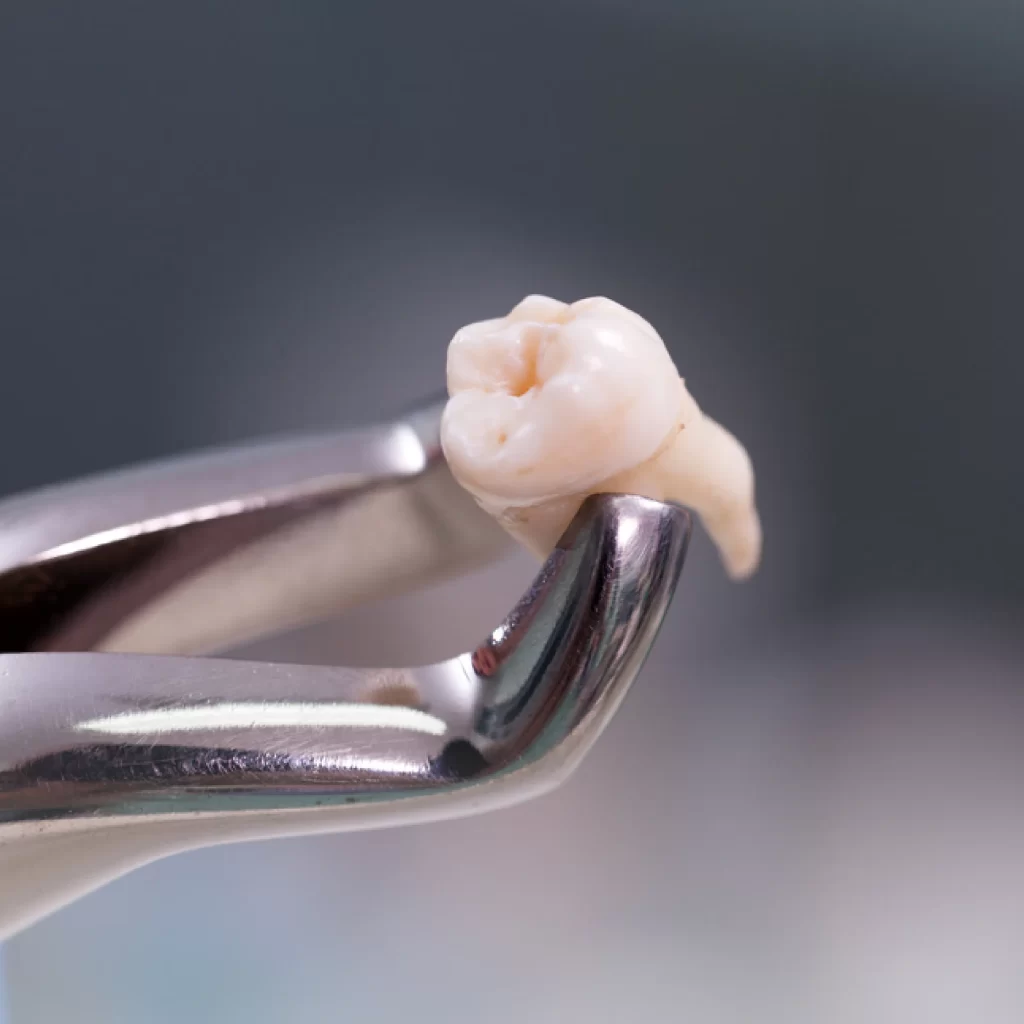Wisdom teeth, situated at the rear of a person’s mouth, are the final set of molars to emerge from the gums and leaves wisdom teeth pain. They can lead to discomfort and gum soreness. While home remedies and medications can provide relief, there may come a point when it’s necessary to undergo wisdom teeth extraction.
In total, there are four wisdom teeth, one located in each of the farthest corners of both the upper and lower gum lines. Wisdom teeth pain associated with these teeth can sometimes resolve naturally, but in certain instances, it may require active self-care at home or professional treatment at a hospital or dental clinic.
This article explores various options for alleviating wisdom teeth pain as well as the underlying causes.
Determining the Arrival of Your Wisdom Teeth

In spite of their impressive title, wisdom teeth lack a genuine function.
These extra sets of molars typically surface during a person’s late adolescence or early twenties, yet they generally serve no essential role in the process of healthy chewing.
While wisdom teeth themselves are not inherently troublesome, they can pose issues when there is insufficient space in the mouth for their emergence or when they do not align properly which causes wisdom teeth pain.
Certain symptoms can serve as clear indicators of whether your four newly emerging molars will be trouble-free or if some or all of them will necessitate extraction.
When to Schedule an Appointment with a Dentist?
If you’re experiencing intense wisdom teeth pain, it is advisable to arrange a dental appointment. During the visit, your dentist will assess your teeth and provide guidance on whether removal is necessary.
Wisdom teeth extraction
Wisdom teeth extraction is a routine dental operation designed to address issues caused by one or more problematic wisdom teeth pain. Typically, this procedure is carried out with the administration of local anesthesia, which numbs the area surrounding the affected tooth. On occasion, patients may also receive sedation to enhance their relaxation during the process.
Throughout the extraction, the dentist or oral surgeon will create an incision in the gum tissue to expose the tooth and the adjacent bone. The tooth is subsequently extracted using forceps or a dental elevator. After the wisdom tooth extraction, the dental professional will cleanse the socket and may insert a dissolvable stitch to facilitate the healing of the gum tissue.
Wisdom teeth surgery
Wisdom teeth surgery is a more intricate procedure typically reserved for cases where the tooth is impacted or has not fully erupted. In such situations, the tooth may be enclosed beneath the gum tissue or bone and causing wisdom teeth pain, rendering conventional extraction methods inadequate.
During wisdom tooth surgery, the patient typically undergoes general anesthesia, inducing a state of unconsciousness throughout the procedure. The dentist or oral surgeon then proceeds to create an incision in the gum tissue to expose the tooth and the surrounding bone. In some instances, it may be necessary to remove a portion of the bone tissue to gain complete access to the tooth.
Once the tooth is visible, the dentist or oral surgeon will utilize forceps or a dental elevator to extract it. In certain cases, they may need to fragment the tooth into smaller pieces to facilitate removal. Following the extraction, the dental professional will cleanse the socket and may apply sutures to aid in the healing of the gum tissue.
Distinguishing Between Wisdom Tooth Extraction and Surgery
The primary distinctions between wisdom teeth extraction and wisdom teeth surgery lie in the procedure’s complexity and the type of anesthesia administered. Wisdom tooth extraction is a less intricate process typically carried out under local anesthesia, whereas wisdom tooth surgery is a more intricate procedure necessitating general anesthesia.
Furthermore, wisdom tooth surgery is typically employed in cases where the tooth is impacted or hasn’t fully emerged, while extraction is usually recommended when the tooth is causing issues but remains easily accessible.
Both procedures entail some level of risk, including potential complications like infection, bleeding, and nerve damage. Nonetheless, these risks are typically minimal and can be mitigated by adhering to the post-operative instructions provided by the dentist or oral surgeon.
Comparing Wisdom Tooth Extraction and Surgery: Which Approach is Suitable for My Needs?
The choice between wisdom teeth extraction and wisdom teeth surgery hinges on the individual circumstances of your case. Your dentist or oral surgeon will assess your dental condition and provide a recommendation for the most appropriate treatment for your wisdom teeth pain.
Broadly speaking, wisdom tooth extraction, being a less invasive and more cost-effective procedure, is well-suited for the majority of cases. Nevertheless, when the tooth is impacted or hasn’t fully emerged, wisdom tooth surgery may be required to ensure its safe and efficient removal.
Indicators of an issue
While mild wisdom teeth pain, tenderness, and other common symptoms can manifest whether or not issues with your wisdom teeth are present, it’s important to be vigilant for signs of trouble that warrant a dentist’s evaluation.
Any occurrence of bleeding gums should be promptly assessed by a dentist, particularly when accompanied by jaw pain and noticeable gum swelling. Even in the absence of wisdom teeth pain, persistent gum bleeding is a cause for concern, as it may signal gum disease.
Indicators that could suggest potentially significant dental issues include:
Wisdom teeth pain
Teeth becoming loose or shifting.
Gums receding.
Presence of sores within your mouth.
Persistent dry mouth.
Toothache.
Tooth sensitivity.
Cracked or broken teeth.
Damage to a filling, crown, or bridge.
Swelling of the gums or cheek.
Is it necessary to extract all wisdom teeth?
There is limited clinical trial evidence to support the removal of impacted wisdom teeth that are free of disease and causing no symptoms.
A report published in the Cochrane Database of Systematic Reviews in 2020 suggested a potential minor link between symptom-free impacted wisdom teeth and conditions such as gum disease and bone loss in neighboring second molars, though the quality of the evidence is not high.
In summary, the decision to extract wisdom teeth in such cases depends on the patient’s preferences and the expertise of the dentist.
Furthermore, researchers recommend that if wisdom teeth are retained, they should be regularly evaluated by a dentist to prevent potential issues such as wisdom teeth pain in the future.
References:
Wisdom Tooth Extraction Vs Surgery | Elite Dental Group
https://www.nhs.uk/conditions/wisdom-tooth-removal/
https://www.medicalnewstoday.com/articles/319461
https://www.healthline.com/health/wisdom-teeth-coming-in#extraction


